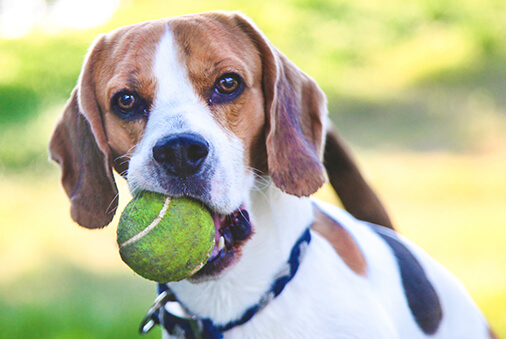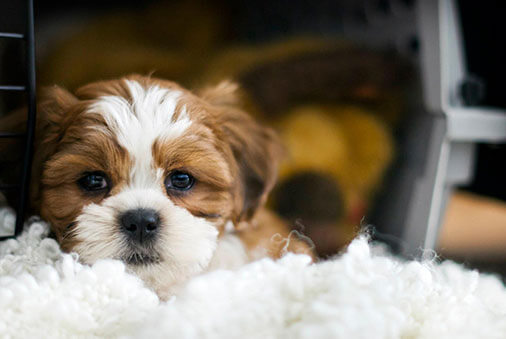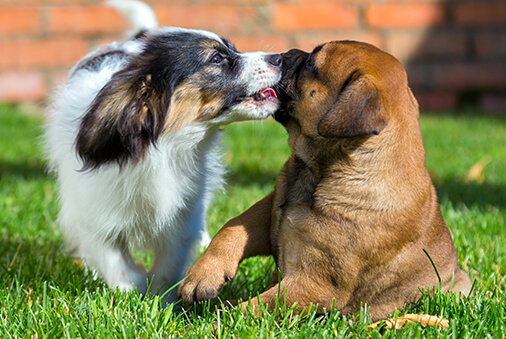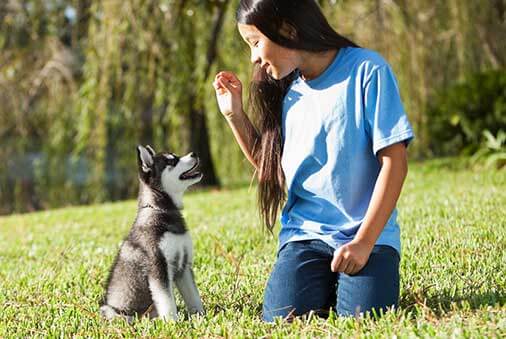Movement and play
Puppies need plenty of exercise so start this good habit early. Regular exercise, along with a wholesome, nutrient-rich diet specifically formulated for a pup’s developmental needs, will help your puppy grow into a physically and mentally strong adult. As the American Kennel Club says, exercise “will benefit his health and could prevent behavior problems.”
Ease your puppy into long walks. Start him on short runs and build up to longer ones, or have him play ball with you outside. Find an activity and pace that works well for both of you.
Meets and greets
One of the most critical steps in your pup’s development is socialization. By creating positive experiences, you’re preparing your puppy for a well-adjusted life, which means getting used to other dogs, cats and people. He also needs to adjust to new sounds, such as passing cars, lawn mowers and vacuum cleaners.
Openness to socialization, unlike obedience training, is crucial between the ages of 12 and 16 weeks. After that time, your puppy will start to become less inclined to welcome new people, pets and experiences.
For example, if your pup has no exposure to tall men with beards or the sound of a power drill, he may mistrust those experiences. Introduce your new puppy to new people and situations slowly, one at a time, and follow up each introduction with a reward.
Patience and positivity
Like everyone, your new puppy will thrive on positive reinforcement rewards while training and socializing. In addition to treats and affection, patience is the best gift you can give yourself and your new furry family member as you start your adventure together.
The first several weeks will be a big adjustment for both you and your puppy. Patience will help you set reasonable expectations that your little guy can meet.
Naturally, discipline will be necessary at times. As professional trainers advise, never scold your puppy for peeing inside the house after the deed has been done. If you do, he’ll only understand that you came home and yelled. He won’t associate his bathroom accident with your anger and thereby won’t learn from it.
Train early
The phrase, “You can’t teach an old dog new tricks” exists for a reason.
While it’s possible to train dogs as they age, it’s more difficult. Just like humans, the more we are used to certain ways of doing things, the harder it is for us to change. Reinforcing good habits, positive interactions and socialization at the youngest possible age will help your puppy thrive in his new environment and foster a strong and trusting relationship with you.
Be consistent
Dogs are creatures of habit, which is why they’re trainable. However that means consistency is key to training. Once you have the essential commands nailed down, keep them the same.
Both rewards and discipline require consistency. Ensuring your pup understands that specific actions elicit specific consequences will encourage more efficient and complete behavioral development.
Training a new puppy can be trying but incredibly rewarding. The effort you put in during those first few months will pay dividends down the line when you have a happy, well-adjusted canine companion for life.





